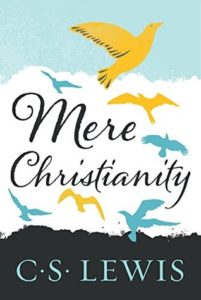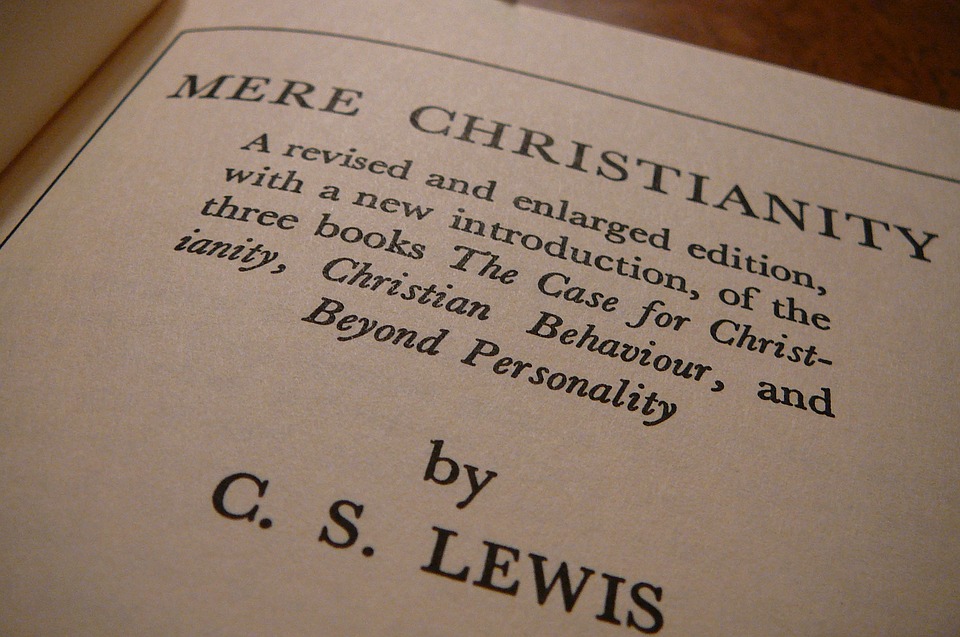While Mere Christianity was one of C. S. Lewis‘ most popular works, it cannot claim the number one spot. This would have to go to his timeless series, The Chronicles of Narnia. This attests to the versatility of Lewis as an author. He could write best-selling children’s stories, and the work that has stood the test of time is one of the great apologetics of the Christian faith. While these are very different works, the principles that Lewis espouses in Mere Christianity pervade The Chronicles of Narnia and most of his other books, as well.
Mere Christianity has often been viewed as the best apologetic for Christianity to be published in the last century. In a little over two hundred pages, Lewis masterfully and articulately distills Christianity down to its basics. Even though Mere Christianity has been published repeatedly since its first appearance on the shelves in 1952, this book started off as a series of talks that Lewis delivered over the radio in England from 1942 through 1944.
Lewis states in the preface that his goal is not to defend one particular brand of Christianity over another. Rather, his intention is to help explain what Christians through the centuries have agreed on. To make sure that he accomplished this, he had five ministers from five different Christian denominations review the finished text. By and large, they all felt that the book captured the essence of true Christianity.
Three sections of the Book
The book is divided into three sections. These are “Right and Wrong as Clues to the Meaning of the Universe,” “What Christians Believe,” and “Christian Behavior.” In perhaps the most quoted section of Mere Christianity, Lewis makes a pointed case for the deity of Christ. Too often people are heard to say something to the effect of, “I believe that Jesus was a good man, a great moral teacher, and maybe even a prophet, but the notion of him being divine is ridiculous.” Lewis’ response makes it clear that that is an unacceptable point-of-view. “A man who was merely a man and said the sort of things Jesus said would not be a great moral teacher. He would either be a lunatic — on the level with the man who says he is a poached egg — or else he would be the Devil of Hell. You must make your choice. Either this man was, and is, the Son of God, or else a madman or something worse. You can shut him up for a fool, you can spit at him and kill him as a demon or you can fall at his feet and call Him Lord and God, but let us not come with any patronizing nonsense about his being a great human teacher.”
 Lewis would never be described as a “Bible thumper.” He does not often quote passage and verse. He is clearly, however, a student of the Scriptures and uses them, along with his well-developed skills of logic, to nudge the reader toward God, Jesus and Christianity. A former atheist himself, Lewis understands the arguments from those who are not Christians.
Lewis would never be described as a “Bible thumper.” He does not often quote passage and verse. He is clearly, however, a student of the Scriptures and uses them, along with his well-developed skills of logic, to nudge the reader toward God, Jesus and Christianity. A former atheist himself, Lewis understands the arguments from those who are not Christians.
“My argument against God was that the universe seemed so cruel and unjust. But how had I got this idea of just and unjust? A man does not call a line crooked unless he has some idea of a straight line. What was I comparing this universe with when I called it unjust?”
Where Does The Understanding of Right and Wrong Come From?
In another passage, Lewis makes the point that our understanding of right and wrong comes from outside of us. “If the whole universe has no meaning, we should never have found out that it has no meaning: just as, if there were no light in the universe and therefore no creatures with eyes, we should never know it was dark. Dark would be without meaning.” This is what sets humans apart from animals. Humans have been created in God’s image and this includes the ability to know good from evil.
Mere Christianity is a good book for someone who is dangling their feet into Christianity. The book will explain what it is all about without making them feel that they have to trade their intellect in first. This is also an excellent title for Christians who want to explain their faith better. Mere Christianity also serves another very useful purpose. It provides the reader with a good introduction to C. S. Lewis. As so many people have found, one C. S. Lewis book will usually lead to another.
https://www.youtube.com/watch?v=bgwq09sIpLQ






